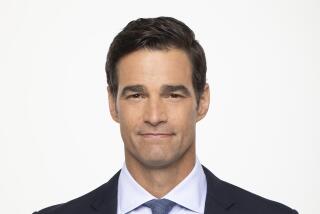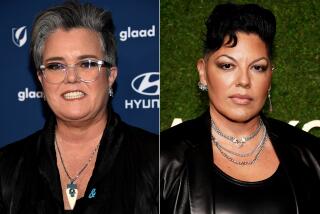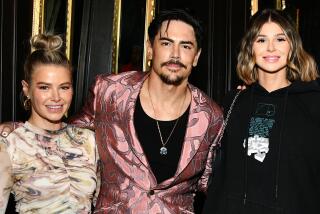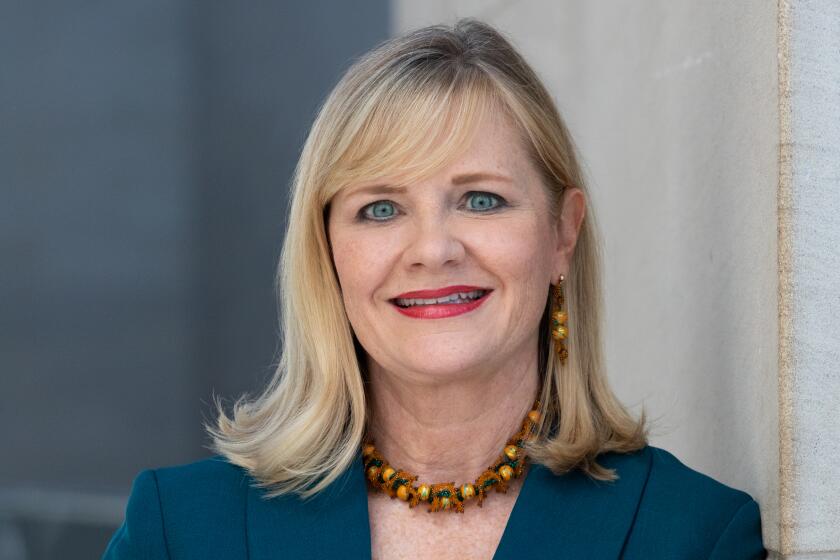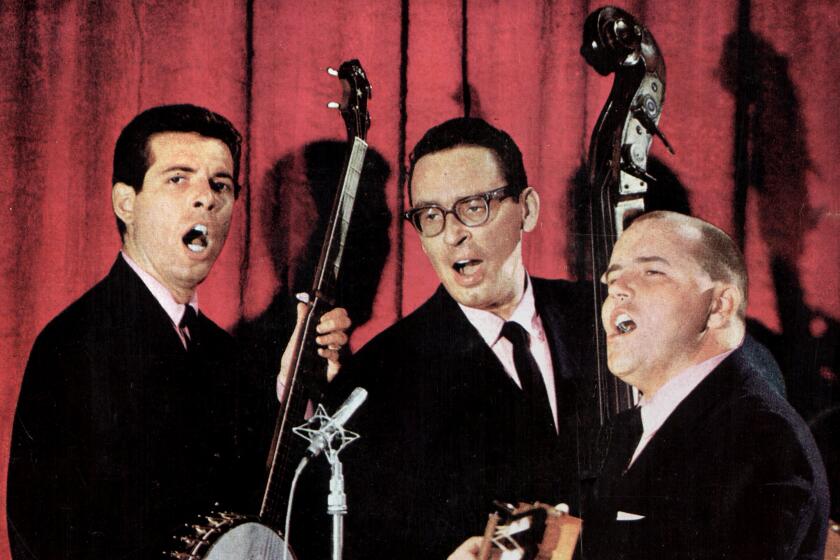Countertenor’s Voice Challenges Conventions of Music, Masculinity
As a lark, Brian Asawa would walk home from choral practice singing soprano. He went on to hit the high notes as one in a small but growing group of professionals: a countertenor.
“The waves are coming,” the 32-year-old singer and recording performer says, referring to the latest exemplars of a long tradition in operatic music: blurring the line between male and female voices.
For nearly 230 years, castrati triumphed on the opera stages of Europe. They were men who had been castrated so their voices would have a quality similar to women’s. At the start of the 19th century, when Baroque opera, with heroes sung in high-pitched male voices, was replaced by romanticism and divas, castrati disappeared from the stage.
In this century, mezzo-sopranos like Marilyn Horne--she often called herself “General Horne”--sang male roles in operas by Handel, Gluck, Rossini and Bellini.
There always have been some countertenors, whose voices had a female range and quality. The Englishman Alfred Deller, who died at 67 in 1979, was the only well-known countertenor of his generation. But now, because of the boom in performing early works as nearly as possible to their original sounds, countertenors are in demand.
The Metropolitan Opera first put countertenors Jeffrey Gall and Derek Lee Ragin on stage in the 1988-89 season in Handel’s “Julius Caesar.” This season, three are singing in a revival of that opera: David Daniels and Daniel Taylor, making their Met debut, and Asawa. Asawa made his Met debut in 1994 as the offstage voice of Apollo in Britten’s “Death in Venice.”
Caesar is sung by a mezzo-soprano, Jennifer Larmore.
Asawa was born in Fullerton and grew up in Los Angeles. He went to UC Santa Cruz as a piano major, where he also sang in two choral groups.
“On the way back to the dorms in the middle of the redwood forest, I would sing the soprano line of the choral music for fun in my falsetto voice. I discovered I had a strong voice in that range. I took this crazy idea of singing falsetto to my teacher,” he recalled.
His voice teacher, a Baroque tenor, explained that the sound he was projecting was close to that of countertenor, a term Asawa did not know that is associated with Baroque and Renaissance music. “He was excited. . . . We started working on a few different types of pieces in my falsetto. After a while, I decided to focus entirely on this voice type.”
Asawa switched from studying piano to voice, as a tenor, at the end of his freshman year. At the end of his sophomore year he transferred to UCLA and, as a countertenor, started studying with two sopranos.
His mother, a hairdresser, and his father, a chemist, encouraged Asawa in music, starting with piano lessons at 5. He sang in the church choir at his Japanese Methodist Church, played cello in junior high and trombone in the high school marching and jazz bands.
Asawa became one of eight winners in the Metropolitan Opera Auditions for Young Singers in 1991, a first for a countertenor.
The same year, he won $2,500 in the San Francisco Opera’s Merola competition, and in 1994 he entered Operalia, the competition for young singers run by Placido Domingo. He received $25,000 as one of seven top winners.
“You do everything you can to make ends meet,” he says. “I relied on every engagement and every competition.”
Today, Asawa also relies on recordings. His latest CD, released in April by RCA, is “Vocalise,” mainly love songs. A song cycle composed for him by Ned Rorem, “More Than a Day,” will be released in May.
Earlier, he released “The Dark Is My Delight and Other 16th Century Songs,” by English composers, and “Encountertenor,” a song cycle written for him by American composer Jake Heggie.
“I like modern music, though I’m not totally in love with the really atonal stuff. But I think it’s important the countertenor voice be utilized in more modern works,” he says. He also has recorded “A Midsummer Night’s Dream” as Oberon, a part Britten had composed for Deller, and Mozart’s “Mitridate.”
Another countertenor, Jeffrey Dooley, who recorded Purcell songs in the 1970s, has a new CD of Stephen Foster songs.
Some opera fans avidly discuss a rivalry between Asawa and Daniels. “David and I are friends,” Asawa says. “We are amazed at how people try to stir up the pot.”
He has taught himself not to feel competitive with other countertenors. “Even though it can be frustrating at times, when it comes to who got what gig or why that person is doing that part instead of me--it is important not to get caught up in all that.
“I think the most important thing is to do every engagement to the best of your ability and be totally committed to it. Then good things will happen.”
Some opera audiences, though accustomed to mezzo-sopranos in male roles, are shocked by countertenors. When Asawa sang in Handel’s “Ariodante” in Dallas, some in the audience seemed uncomfortable, he says, “with a female voice emanating from a male body. It was a little too trippy for them.”
Listeners to his recordings don’t always know the voice is a man’s, Asawa says. “When my friends listened to the ‘Vocalise’ record, they said, ‘Who’s that woman? When are you coming on?’ Sounding like a woman isn’t my aim. But I definitely take it as a compliment when somebody says I sound like a mezzo-soprano.”
When you choose to become a countertenor, Asawa says, “You have to relinquish your fear of being thought of as non-masculine. If you’re obsessed with making sure you always appear manly, I don’t think you’d pursue the voice type.”
More to Read
The biggest entertainment stories
Get our big stories about Hollywood, film, television, music, arts, culture and more right in your inbox as soon as they publish.
You may occasionally receive promotional content from the Los Angeles Times.
